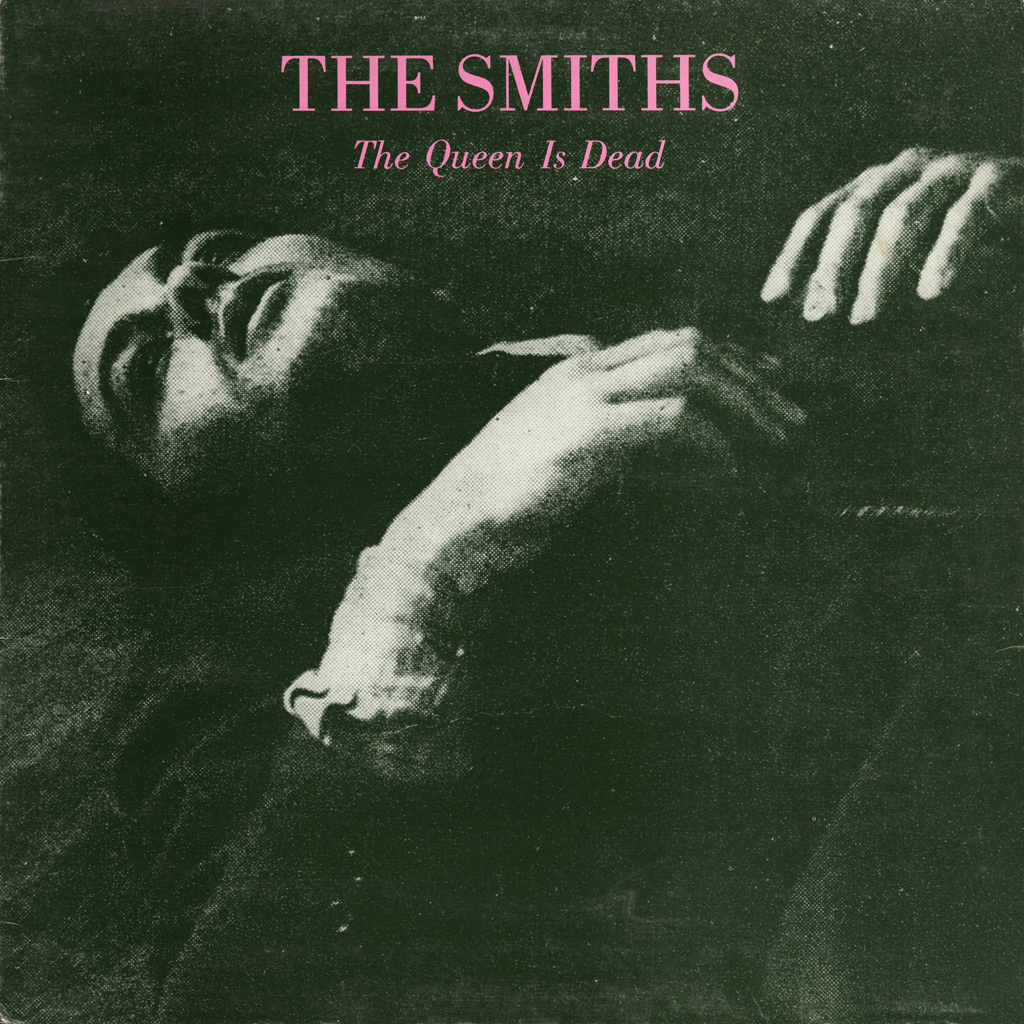Rating: 9.8/10
Thirty years ago today, legendary Manchester band The Smiths released The Queen Is Dead, their greatest album and one of the most revered records in music history. The Smiths were already making waves in the British alternative scene of the 1980's with their strong first two LP's - The Smiths and Meat is Murder - and non-album singles like "How Soon Is Now?" and "Please, Please, Please, Let Me Get What I Want." But on The Queen Is Dead, The Smiths hit another gear: Johnny Marr's riffs were more addictive than they'd ever been, Andy Rourke's bass lines became even more indispensable, and Morrissey delivered the best vocal performances of his career. Never before or since did the group put together a more complete album, and today it stands as one of greatest albums of the decade if not of all time.
The Queen Is Dead begins with its title track, one of the most ferocious pieces of music The Smiths ever recored. A sample from the 1962 movie The L-Shaped Room is cut off by a wail of feedback and a thunderous drum pattern before the band launches into a six-minute psychedelic escapade. Like the best songs by The Smiths, "The Queen Is Dead" features lyrics that veer from bitingly sarcastic to emotionally direct and devastating. Here, he starts with the former, alluding to the title of the album and further demonstrating his disdain for the British Monarchy: "Her very Lowness with her head in a sling / I'm truly sorry but that sounds like a wonderful thing." Here, we get our first glimpse of the macabre theme that permeates so much of The Smiths' music, but The Queen Is Dead in particular. Later, he offers a bit less dark humor and a bit more vulnerability, repeating "Life is very long when you're lonely."
The Queen Is Dead also features the strongest one-two punch of gloom The Smiths ever recorded, in the form of consecutive tracks "I Know It's Over" and "Never Had No One Ever." The former is one of the most relatable and moving break-up songs ever written. Though Morrissey recognizes via the title that his relationship is no more, he's still unable to detach himself from the other person emotionally: "And I know it's over / I still cling / I don't know where else to go." "Never Had No One Ever" (double negative be damned) explores an even sadder character, as Morrissey fills the shoes not of someone who can't get over an ex, but somebody who's never even had an ex.
Of course, The Smiths are just as good at being light as they are at being heavy. The bouncy "Frankly, Mr. Shankly" remains perhaps the funniest moment of the group's discography, with lines like "Frankly, Mr. Shankly, since you asked / You are a flatulent pain in the arse." (In true Morrissey fashion, the singer then proceeds to almost immediately request, "give us your money!") "Some Girls Are Bigger Than Others" is laughable, though not in the way Morrissey probably intended; while he probably wanted us to snicker at his lyric on its own merit, the humor comes from the contrast between the song's mesmerizing instrumentals and ridiculous, mediocre lyrics. Even "Vicar In a Tutu," the album's only real step down in quality, offers up chuckle-inducing imagery. Earlier this week, Simon Price wrote a piece for The Quietus in which he suggested that these moments of levity detract from The Queen Is Dead's emotional impact and overall quality. As a counterpoint, I would argue that they offer much-needed breaks from the melancholy, and make the album feel more genuine and more human.
What makes The Queen Is Dead stand apart from other Smiths records and in truth from pretty much all but a handful of other albums in general are the absolutely blissful, brilliantly-worked instrumentals. Rarely will you find a track so effortlessly buoyant as "The Boy With the Thorn In His Side," or guitar-bass interplay as captivating as that on "Bigmouth Strikes Again." The false fade at the beginning of "Some Girls Are Bigger Than Others" is a unique stroke of genius that will never be replicated to the same effect, and the guitar work that follow is one of Marr's greatest achievements.
"There Is A Light That Never Goes Out" wouldn't feel nearly as magical without those soaring strings.
Three decades later, much of the music from the 1980's sounds incredibly dated, but The Queen Is Dead remains forever timeless. Its themes are universal no matter what generation you belong to, and no period of time will can take away the majesty of Morrissey's melodies and Marr's brilliance. At the same time, however, The Queen Is Dead signifies the decade from which it came. It's the magnum opus a band synonymous with the early days of indie rock, and Morrissey could never really exist successfully in any time or place other than 1980's Britain - just look at his solo work for proof. It's an album that will never go away, and also an album that will never let you forget where it came from. It's one of the most important, beloved, and iconic pieces of alternative music history. But most of all, it's a collection of songs that will blow you away time and time again.

No comments:
Post a Comment